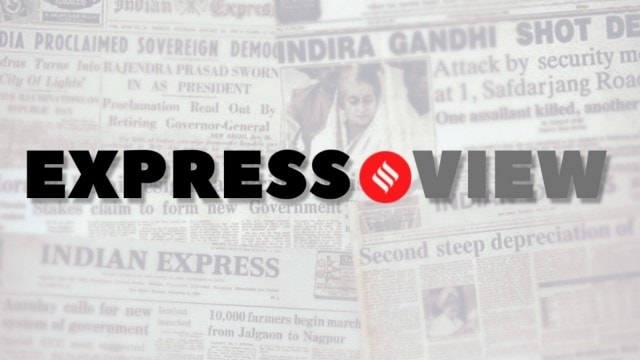
In times when defining “terror” can become an exercise of state power that is arbitrary, opaque and oppressive, and the stringent anti-terror law weaponised to restrict fundamental rights and freedoms, the Jammu and Kashmir High Court has drawn some much-needed red lines. Granting bail to journalist Fahad Shah, and quashing charges framed against him under the Unlawful Activities (Prevention) Act — Shah was held under provisions of the UAPA in April 2022, nearly 11 years after publication of an article “The shackles of slavery will break” on his portal in 2011 — the court raised the bar for state action. It said that an investigative agency must justify the arrest of an accused under the UAPA, on the anvil of “clear and present danger of the accused to the society at large, if enlarged on bail”. It rejected police arguments that honour and dignity of India is a property under the anti-terror law, the destruction of which is a terrorist act — this argument, the court said, “would literally turn criminal law on its head… mean that any criticism of the central government can be described as a terrorist act because the honour of India is its incorporeal property… collide headlong with the fundamental right to freedom of speech and expression…” It is a strike by the court for justice, democratic accountability and press freedom.
The court has gone to the heart of this matter before. In June 2021, in perhaps the first instance of a court underlining the state’s misuse of UAPA, three Delhi High Court orders granting bail to three student activists in a case connected to the 2020 Delhi riots, had drawn similar lines, asked similar questions. Terror activity cannot be so broadly defined as to include ordinary penal offences, ruled the court. Rejecting the broad interpretation of the terror clause by Delhi Police, including its blurring of lines between “intent to threaten the unity and integrity…” and the “likelihood” to do so, the court cautioned that it is a “sacrosanct principle of interpretation of penal provisions” that they be strictly and narrowly construed. “The extent and reach of terrorist activity must travel beyond the effect of an ordinary crime…”.
And in April this year, in the Media One case, which did not involve UAPA, but which featured a government citing an undisclosed national security consideration to deny renewal of license to a Malayalam news channel, the Supreme Court said that “… national security claims cannot be made out of thin air”. And flagged a disturbing trend: “the state is using national security as a tool to deny citizens remedies that are provided under the law. This is not compatible with the rule of law”. In asking hard questions of the state, in pointing to the flimsiness of a case sought to be papered over by the harsh law, the court has stepped up to the role and responsibility of the judiciary as the vital check against an overstepping state. The onus is now on the government — to listen to the court, and to respect the vital distinctions it makes, necessary for guarding against unfreedom.